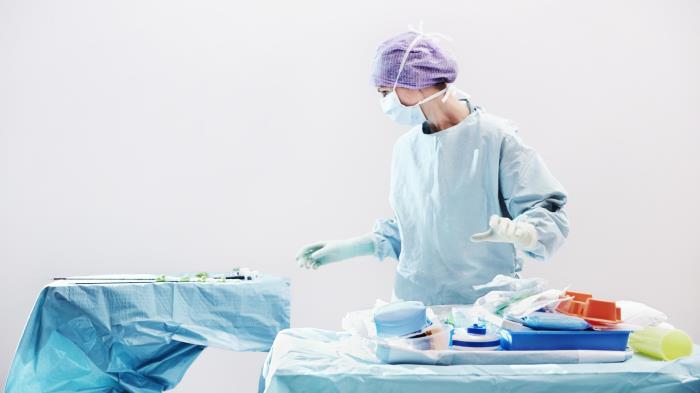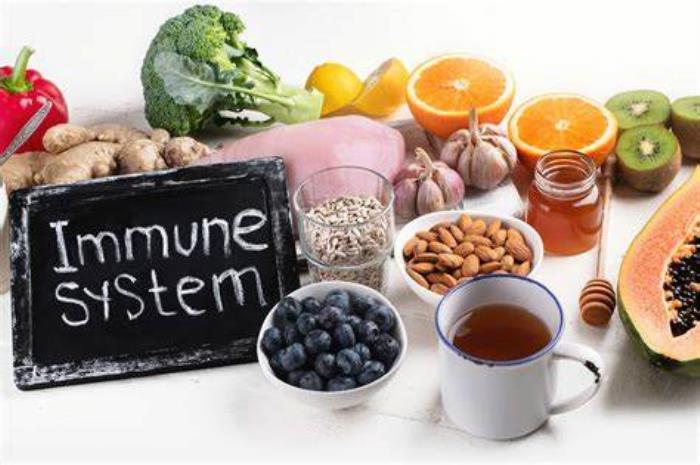Infections are a potential complication after heart valve surgery, which can impactrecoveryand the success of the procedure. Patients withartificialor repaired valves are particularly vulnerable to infections likeendocarditisdue to the direct exposure of surgical areas to bacteria. Understanding these risks and taking proactive steps to prevent infections is vital for ensuring long-term health and recovery.
Medical disclaimer: This content is for general awareness and does not replace a doctor’s consultation. For diagnosis or treatment decisions, consult a qualified specialist.
Importance of Good Hygiene in Infection Prevention
Maintaininggood hygieneis a foundational step in preventing infections after heart valve surgery. Regularhandwashing, especially before handling your wound or taking medications, minimizes the risk of introducing bacteria. Clean and dryclothing,bedding, and personal items also contribute to a sterile environment. Avoidingcrowdedor unsanitary places during the initial recovery phase further reduces infection risks.
Caring for Your Surgical Wound: Dos and Don’ts
Properwound careis critical for avoiding infections at the surgical site. Patients should clean the area as advised by their healthcare provider and keep itdry. Avoid touching the wound unnecessarily, and refrain from usingharshor unapproved products that may irritate the skin. Alert your doctor immediately if you noticeredness,swelling, ordischargearound the incision site, as these could indicate an infection.

Recognizing Early Signs of Infection
Timely detection of an infection can prevent complications. Common warning signs includefever,chills,unusual fatigue, redness or warmth around the wound, andpus-like discharge. Additionally, if there is a sudden increase inpainnear the surgical site or an overall feeling ofunwellness, it’s essential to contact your healthcare provider promptly.
The Role of Antibiotics in Preventing Infections
Antibioticsare often prescribed during and after heart valve surgery to minimize infection risks. Following the prescribed antibiotic course without missing doses ensuresoptimal protection. Some patients, especially those withprosthetic valves, may require prophylactic antibiotics before certainmedicalordental proceduresto prevent bacteria from entering the bloodstream.
Managing Dental Health to Reduce Infection Risk
Dental healthis closely linked to the risk of infections in heart valve patients. Poororal hygieneor untreated dental issues can allow bacteria to enter the bloodstream, potentially leading toendocarditis. Regulardental checkups, brushing, flossing, and using anantimicrobial mouthwashcan help maintain oral health. Inform your dentist about your surgery, as you may need antibiotics before invasive dental procedures.
Avoiding Skin Infections After Heart Valve Surgery
Preventingskin infectionsis another critical aspect of recovery. Patients should avoid activities that may causecutsor abrasions and treat any skin injuries promptly.Moisturizingto prevent dryness and cracking, wearinglooseand breathable clothing, and avoiding contact with individuals who havecontagious skin conditionsare also effective measures.
Importance of Regular Follow-Ups with Your Cardiologist
Regular follow-ups with your cardiologist are critical after heart valve surgery. These appointments help monitor yourheart’s function, ensure the valve is working properly, and detect any early signs ofcomplications. Your doctor may performimaging testsorblood workto assess your recovery progress. Regular check-ins also provide an opportunity to adjust medications or discuss symptoms and concerns.
Vaccinations to Protect Against Infections
Vaccinations, such as those forinfluenza,pneumonia, andCOVID-19, play an essential role in protecting heart valve surgery patients from infections. Post-surgery patients are more susceptible to infections due to a potentiallyweakened immune system. Consult your healthcare provider to ensure your vaccination schedule is up to date.
How to Maintain a Clean Environment at Home
Maintaining aclean environmentis vital for recovery after heart valve surgery. Disinfectfrequently touched surfaces, ensure properventilation, and avoid exposure todustandmold. Use cleanbed linensandtowels, and encourage caregivers to practice hygiene to reduce infection risks.
Dietary Tips to Boost Your Immune System
Abalanced dietrich in nutrients can help strengthen your immune system. Include foods high invitamins C and D,zinc, andantioxidants, such as citrus fruits, leafy greens, nuts, and fish. Stayhydratedand limitprocessed foods, as they can weaken your immune response.

Tips for Traveling Safely After Heart Valve Surgery
Traveling after heart valve surgery requires careful planning. Carry yourmedical records, medication list, and contact details of your cardiologist. Avoidextended periods of immobilityby walking or stretching during long trips. Stayhydrated, avoid high altitudes without medical advice, and ensure you have access tohealthcare facilitiesat your destination.
Managing Chronic Conditions to Lower Infection Risks
Chronic conditionslike diabetes, hypertension, or respiratory issues can increase the risk of infections post-surgery. Work with your healthcare provider tomanage these conditionseffectively through medication, regular monitoring, and lifestyle changes. Keeping these conditions under control minimizes strain on your heart and boosts your recovery.
How to Safely Resume Social Interactions Post-Surgery
Resuming social interactions after heart valve surgery should be done cautiously. Avoidcrowded spacesinitially and ensure friends or family visiting are free ofcontagious illnesses. Gradually increase social activities while prioritizing your health and comfort.Virtual meetingscan also help you stay connected without exposure risks.
Understanding Endocarditis and Its Prevention
Endocarditis, an infection of the heart’s inner lining, is a serious complication for heart valve surgery patients. It can occur ifbacteria enter the bloodstreamthrough dental work, infections, or wounds. Preventive measures includegood oral hygiene, prompt treatment of infections, and taking prescribed antibiotics before certain medical procedures.
When to Contact Your Doctor About Possible Infections
Contact your doctor immediately if you notice symptoms such asfever,chills,rednessor swelling around the surgical site,unusual fatigue, or persistent cough. Early intervention can prevent minor infections from becoming severe complications.
Importance of Hand Hygiene for You and Your Caregivers
Properhand hygieneis one of the simplest yet most effective ways to prevent infections. Wash hands thoroughly withsoap and waterbefore eating, after using the restroom, and when caring for wounds. Caregivers should also practice good hand hygiene to minimize infection risks.
Managing Medical Devices and Catheters Safely
If you are usingmedical deviceslike catheters post-surgery, follow your healthcare provider’s instructions for their care and maintenance.Clean and disinfectdevices regularly, and watch for signs ofinfectionlike redness, swelling, or discharge near the insertion site.
Monitoring Your Temperature and Other Vital Signs
Regularly monitoring yourtemperature,heart rate, andblood pressurecan help detect early signs of infection or complications. Invest in a reliable thermometer and other home monitoring devices. Report anysignificant changesto your doctor promptly.
Life After Heart Valve Replacement: Lifestyle Changes and Adaptations
Learn about the necessary lifestyle changes after heart valve replacement. From managing physical activity to following dietary recommendations, adapting to life post-surgery is crucial for long-term heart health. This article provides practical advice for a successful recovery journey.
Myths and Facts About Infections After Heart Valve Surgery
Myth: Infections only occur immediately after surgery.
Fact:Infection risks persist long after surgery, requiring ongoing vigilance.
Myth: Antibiotics are always necessary to prevent infections.
Fact:Antibiotics are recommended only for specific situations, like certain dental procedures, based on your doctor’s advice.
Best Heart Valve Replacement Surgeons in India
TheBest Heart Valve Replacement Surgeons in Indiaare highly skilled in complex valve procedures, offering personalized care to help patients achieve successful outcomes and enhanced heart health.
FAQs
What are the most common infections after heart valve surgery?
Surgical site infectionsandendocarditisare the most common. Respiratory infections can also occur, especially if immunity is compromised.
How can I prevent surgical site infections?
Keep the surgical sitecleananddry, follow wound care instructions, and notify your doctor if you notice any redness, swelling, or discharge.
Why is dental health important after heart valve surgery?
Poordental hygienecan lead to bacteria entering the bloodstream, increasing the risk of endocarditis. Regular dental check-ups and good oral care are essential.
Do I need antibiotics before dental or medical procedures?
Yes, your doctor may prescribe antibiotics before procedures to prevent bacteria from causing infections. Always inform healthcare providers about your valve replacement.
What should I do if I notice redness or swelling around my wound?
Contact your doctor immediately, as these could be signs ofinfectionrequiring prompt medical attention.
Explore the Best Heart Care Resources in India
Find some of the top cardiologist, surgeons and the best heart hospitals in India
Best Heart Hospitals in India
Choosing the right hospital is crucial for successful heart treatments. If you want to explore trusted options, check the list of Best Heart Hospitals in India offering world-class facilities, advanced cardiac care units, and experienced teams for both simple and complex procedures.
Best Cardiologists in India
Finding the right cardiologist can make a huge difference in early diagnosis and long-term heart health. If you are looking for the Best Cardiologists in India, see this curated list of experts who specialize in preventive care, interventional cardiology, and complex heart disease management. Check the full list Best Cardiologists in India.
Best Cardiac Surgeons in India
If you are planning for heart surgery and need top-level expertise, we recommend exploring the Best Cardiac Surgeons in India. These surgeons have a proven record in performing bypass surgeries, valve replacements, and minimally invasive heart operations with excellent outcomes.
Get more indepth information on Cardiology treatments and their costs.
Conclusion
Your cardiology health deserve the best care. Explore the links above to learn more about the top cardiac hospitals and cardiac surgeons in India.
Discover the best hospitals in India for heart valve replacement surgery, including top choices, advanced techniques, and cost-effective options. Best Heart Valve Replacement Surgery Hospitals in India
Heart valve surgery, while often life-saving, carries certain risks and potential complications. These include bleeding, blood clots that can lead to heart attack or stroke, infection at the incision site or within the new valve (endocarditis), arrhythmias (abnormal heart rhythms), pneumonia, kidney problems, and valve failure. The type of valve used (mechanical or biological) and the patient's overall health can influence the likelihood of these complications. Risks and Complications Associated with Heart Valve Surgery
Recent advancements in heart valve surgery have led to the development of minimally invasive techniques that offer significant benefits over traditional open-heart surgery. These innovations include Transcatheter Aortic Valve Replacement (TAVR), Transcatheter Edge-to-Edge Repair (TEER), and Transcatheter Mitral Valve Repair (TMVR). These procedures involve threading a catheter through a small incision, usually in the groin, to reach the heart and repair or replace the faulty valve2
. These techniques reduce recovery time, lower the risk of complications, and improve patient outcomes. Innovations in Heart Valve Surgery Minimally Invasive Techniques